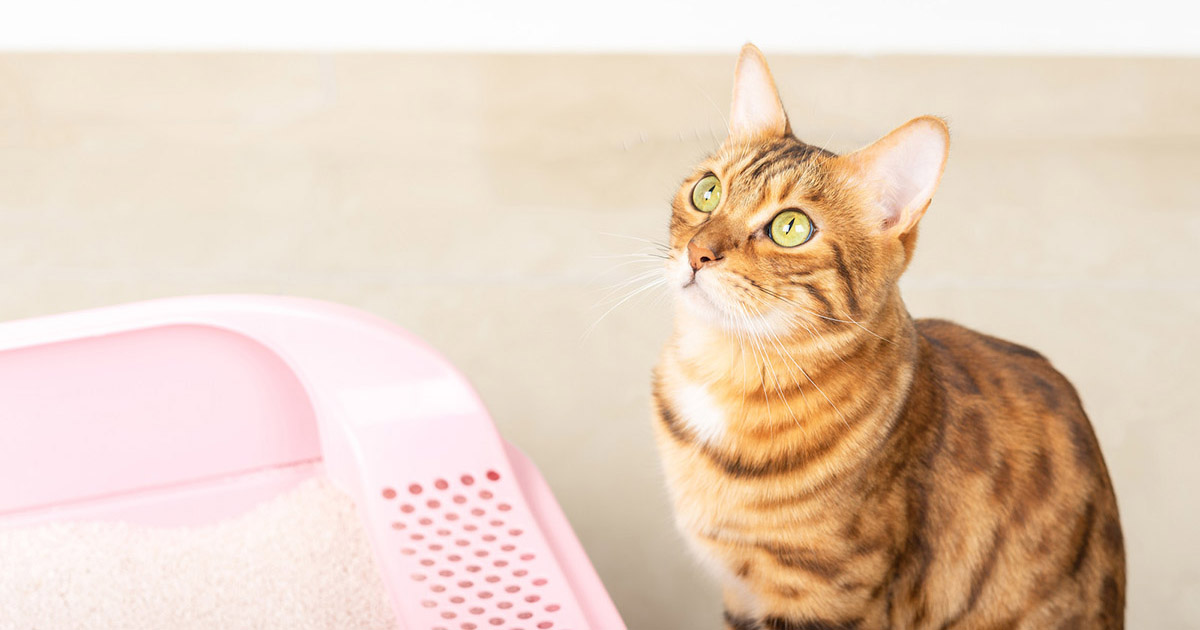We've noticed this post involving Don’t flush cat feces down the toilet down the page on the internet and figured it made sense to share it with you on this page.

Introduction
As feline proprietors, it's essential to bear in mind exactly how we get rid of our feline close friends' waste. While it may seem practical to purge pet cat poop down the commode, this method can have harmful consequences for both the atmosphere and human health.
Ecological Impact
Flushing pet cat poop introduces unsafe virus and bloodsuckers into the water system, posing a substantial danger to water environments. These impurities can adversely impact marine life and concession water high quality.
Health and wellness Risks
Along with environmental problems, purging pet cat waste can additionally present health and wellness threats to people. Pet cat feces may include Toxoplasma gondii, a bloodsucker that can trigger toxoplasmosis-- a possibly severe ailment, specifically for pregnant ladies and individuals with damaged immune systems.
Alternatives to Flushing
Thankfully, there are more secure and much more liable ways to take care of cat poop. Think about the complying with choices:
1. Scoop and Dispose in Trash
The most usual technique of dealing with cat poop is to scoop it into a biodegradable bag and throw it in the trash. Make certain to use a specialized trash scoop and deal with the waste promptly.
2. Use Biodegradable Litter
Go with eco-friendly cat trash made from products such as corn or wheat. These clutters are environmentally friendly and can be securely dealt with in the trash.
3. Hide in the Yard
If you have a backyard, take into consideration burying cat waste in a designated location away from vegetable yards and water resources. Make sure to dig deep adequate to avoid contamination of groundwater.
4. Set Up a Pet Waste Disposal System
Invest in a pet dog garbage disposal system particularly developed for feline waste. These systems use enzymes to break down the waste, lowering odor and ecological influence.
Conclusion
Liable family pet possession expands beyond offering food and shelter-- it also entails proper waste management. By refraining from flushing pet cat poop down the toilet and opting for different disposal techniques, we can reduce our environmental footprint and shield human health.
Why You Should Never Flush Cat Poop Down the Toilet
A rose by any other name might smell as sweet, but not all poop is created equal. Toilets, and our sewage systems, are designed for human excrement, not animal waste. It might seem like it couldn’t hurt to toss cat feces into the loo, but it’s not a good idea to flush cat poop in the toilet.
First and foremost, assuming your cat uses a litter box, any waste is going to have litter on it. And even the smallest amount of litter can wreak havoc on plumbing.
Over time, small amounts build up, filling up your septic system. Most litter sold today is clumping; it is made from a type of clay that hardens when it gets wet. Ever tried to scrape old clumps from the bottom of a litter box? You know just how cement-hard it can get!
Now imagine just a small clump of that stuck in your pipes. A simple de-clogger like Drano isn’t going to cut it. And that means it’s going to cost you big time to fix it.
Parasitic Contamination
Believe it or not, your healthy kitty may be harboring a nasty parasite. Only cats excrete Toxoplasma in their feces. Yet it rarely causes serious health issues in the cats that are infected. Most people will be fine too if infected. Only pregnant women and people with compromised immune systems are at risk. (If you’ve ever heard how women who are expecting are excused from litter cleaning duty, Toxoplasma is why.)
But other animals may have a problem if infected with the parasite. And human water treatment systems aren’t designed to handle it. As a result, the systems don’t remove the parasite before discharging wastewater into local waterways. Fish, shellfish, and other marine life — otters in particular — are susceptible to toxoplasma. If exposed, most will end up with brain damage and many will die.
Depending on the species of fish, they may end up on someone’s fish hook and, ultimately on someone’s dinner plate. If that someone has a chronic illness, they’re at risk.
Skip the Toilet Training
We know there are folks out there who like to toilet train their cats. And we give them props, it takes a lot of work. But thanks to the toxoplasma, it’s not a good idea.

We had been made aware of that write-up about How to Dispose of Cat Poop and Litter Without Plastic Bags through someone on another website. Sharing is good. Helping people is fun. We cherish reading our article about How to Dispose of Cat Poop and Litter Without Plastic Bags.
Suggested Site